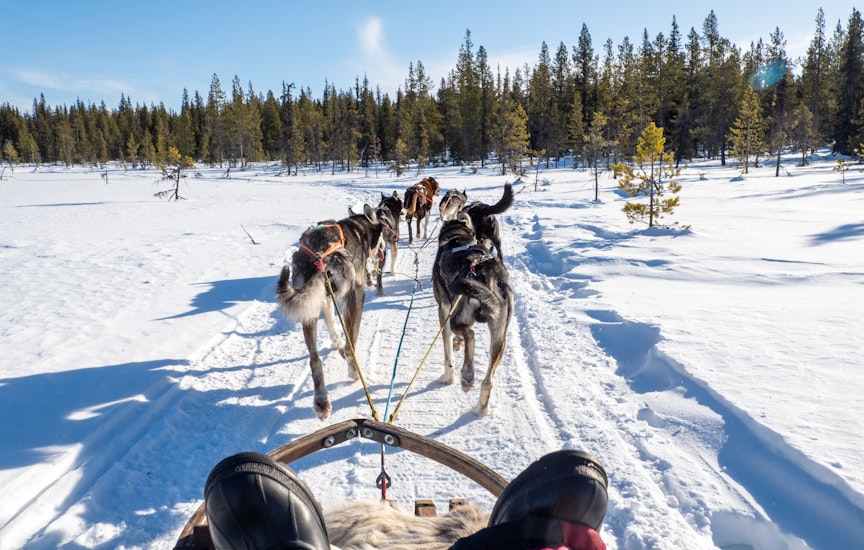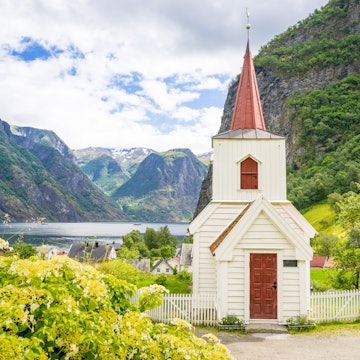
Exploring Gothenburg’s sustainable side: a green weekend itinerary

Jul 26, 2022 • 7 min read
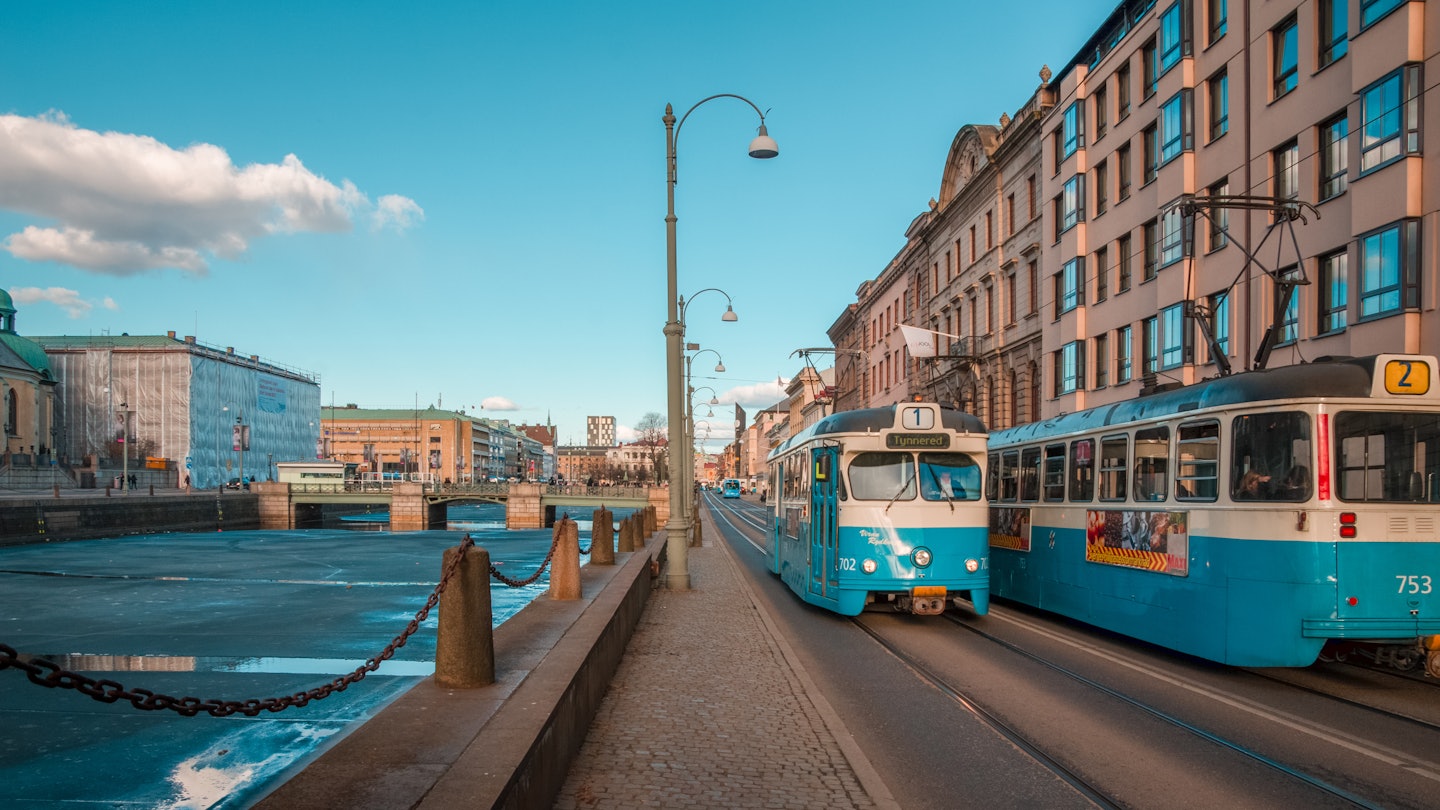
The electric trams run in the center of Gothenburg © Alicia_Garcia / Getty
Gothenburg, with its relaxed vibe, cool neighborhoods, ample restaurants and easy access to nature, hits all of the notes of a great European city break destination.
But as travel trends continue to head towards minimizing the environmental impact and carbon footprint of travel, more people are reassessing the impact of their short holidays. Luckily, the one thread that runs through this Swedish city, whether you’re bar-hopping or island exploring, is a commitment to sustainability.
Sweden's most beautiful beaches
Gothenburg is one of the most sustainable cities in the world
In 2021, Lonely Planet recognized Gothenburg as the most sustainable city stay, noting that 97% of the city’s public transport runs on renewable energy, 95% of the hotels are eco-certified, and the city is in the process of developing the Gothenburg Green City Zone, a zero-emission transportation system for a large section of the central city. In 2020 the city was named the European Capital of Smart Tourism, alongside Malaga, in recognition of both its eco-friendly and forward-thinking approach to tourism.
Both the climate crisis and the COVID-19 pandemic have made many of us rethink our approach to travel and its impact on our communities, and Gothenburg has the distinction of already having laid the groundwork for a sustainable tourism practice. With its green credentials firmly in place, travelers can easily opt in to more sustainable experiences as they explore the city.
For example, I took only public transport around the city, including to and from Landvetter Airport. Even an excursion to the beautiful archipelago off the coast of the city was accessible on local transport. But more than just getting around, greener choices are made easy in Gothenburg, whether it's for where you eat, sleep and explore.
The most unmissable places to visit in Sweden

Eat fresh from the sea and surrounds
With an ample coastline and easy access to some of the continent’s most stunning wild places, it’s no surprise that the Swedish city takes fresh food seriously. But many restaurants are looking at how to go even further than just buying local, and instead becoming involved in the growing and harvesting of their own ingredients.
At VRÅ, a Japanese-Nordic fusion restaurant, chef Sofia B Olsson found that instead of importing French oysters, the same variety had become invasive to Sweden, and could be harvested locally - solving two problems at once. She started a partnership with a second-generation diver to get the oysters, making them popular in a number of other restaurants - a demand that ended up creating about 10 jobs. While the seafood comes from the nearby coast, much of the produce comes from even closer — the rooftop garden, which is also fed by compost made from kitchen scraps. Even the seating is made from broken down shells from the restaurant’s waste, and from these seats guests can enjoy not just sushi, but dishes that combine Japanese and Nordic influences, like a sea buckthorn sorbet with white chocolate miso and bee pollen.
There’s also Human, where the ethos is more than hinted at in the name — the restaurant is designed to not just be friendly to the environment, but also its guests and neighbors. Chef Martin Moses chose the location, on a residential street near the Skansen Kronan fortress, to encourage visitors to wander off the beaten path and into a cozier side of town, distributing visitors to a new place. There, the emphasis is on knowing the people behind everything that comes into the restaurant — whether it's the chairs or the ingredients.

Of course, no visit to Sweden is complete without some fika (coffee and a pasty). Pop into the coffee chain Da Matteo, where the coffee is roasted locally in an eco-friendly roaster.
The very best things to do in Sweden: castles, canals and culinary delights
Where to sleep
When it comes to spending the night in Gothenburg, 95% of all of the hotel rooms in the city are environmentally certified, making it “one of the greenest hotel cities in the world." Hotel Eggers, where I stayed, is the third-oldest hotel in Sweden that is still in operation. The hotel has been in existence since 1868 when the railway came into the area. The hotel is powered entirely by electricity produced by its own wind turbine, which is also used in its sister hotels.
With the majority of hotel rooms certified, it won’t be hard to make this a travel criteria for your trip, but check hotels for certifications like the Nordic Swan ecolabel or Green Key. The same standards apply as a number of new hotels open in the city, such as the Scandic Göteborg Central. The LEED platinum and Nordic Swan eco-labeled building has 451 rooms and a massive rooftop terrace with views of the river.
Everything you need to know before your vacation in Sweden

Where to shop
With Scandinavia famed for its fashion, a wonderful way to shop sustainably is to seek out secondhand clothes. Stadsmissionen is a charity shop chain, as well as Myrorna, both of which encourage shoppers to participate in a circular economy.
If you want to shop local brands, check out Nudie Jeans, where a purchase of a pair of pants comes with a lifetime repair policy. And don’t worry if you’re picking up jeans as a souvenir — you won’t have to travel all the way back to Gothenburg, as you can get them repaired at spots in North America, Asia, Europe and even Australia. Icebug is another local brand, creating running shoes and aiming to extend the life of its product by aiding with repairs. Their focus is on reducing the impact of shoemaking on the environment. According to the company, they became the first “climate positive” outdoor footwear brand in 2019. The following year they began offsetting carbon emissions by 200%, also covering their historical emissions since the start in 2001.
8 eco-friendly destinations where sustainability is priority

Getting out of the city center
Gothenburg may be the epitome of a relaxed city, but there are still plenty of places to get out to enjoy things at an even slower pace of life. A number of unique attractions can be reached via public transportation, such as the nature reserve Vättlefjäll. Using buses, trams and even ferries, I was able to see some incredible sites with little effort and no car.
One stop is Gunnebo house, an 18th-century estate that’s just a 45-minute bus ride away from the city. There, you’ll find the beautiful home, which will allow visitors to take a tour and stroll through the beautiful gardens. Stop by the restaurant, Kaffehus och Krog, which sits in the middle of a kitchen garden. There, you can sample organic food and baked goods made with seasonal food from the garden as well as ingredients from local producers.
7 rewilding projects you can visit in Europe
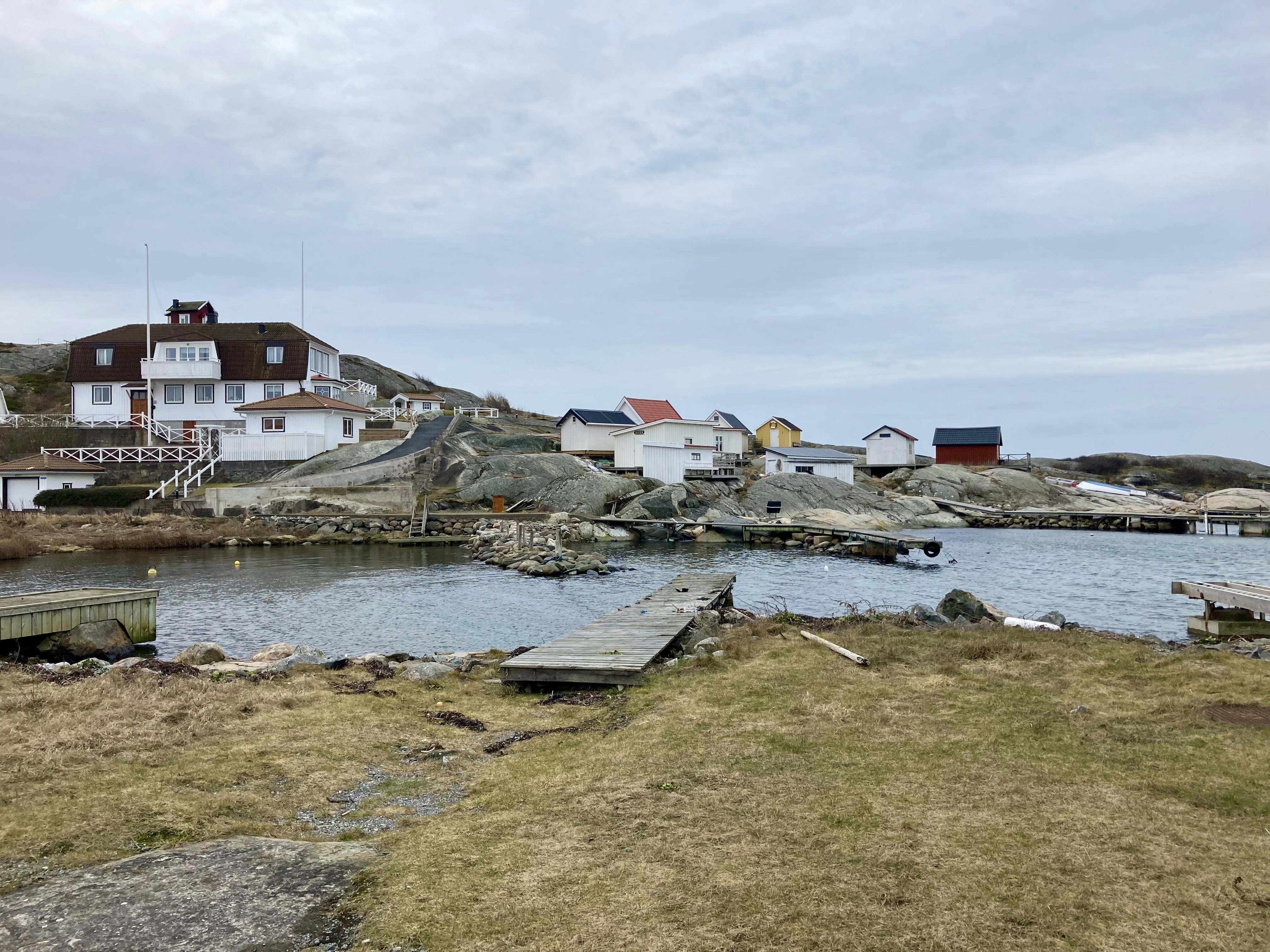
A bit of island-hopping
Just off the coast of the city lies an entire archipelago of islands that can easily be explored. With their whimsical homes, these islands are easily accessible. I took the 11 tram from the Central station, winding through the city center and into more residential areas before arriving at the ferry service from Saltholmen. From there, the same ticket can be used to hop aboard a ferry that will take you to the islands in only about 30 minutes. .
I spent the night on the island of Vrångö, the southernmost island of the archipelago. The rugged landscape is loved for locals for its rocky shores and beautiful beaches. The car-free island, which is home to a nature reserve, is easily explored on foot. I spent the night in Kajkaten, a small collection of boathouse-style lodges, which also boasts a floating sauna. Unsurprisingly, given the proximity to the sea, I was also able to feast on fresh fish from the restaurant Fiskeboa Vrångö.
10 incredible sustainable travel experiences around the world
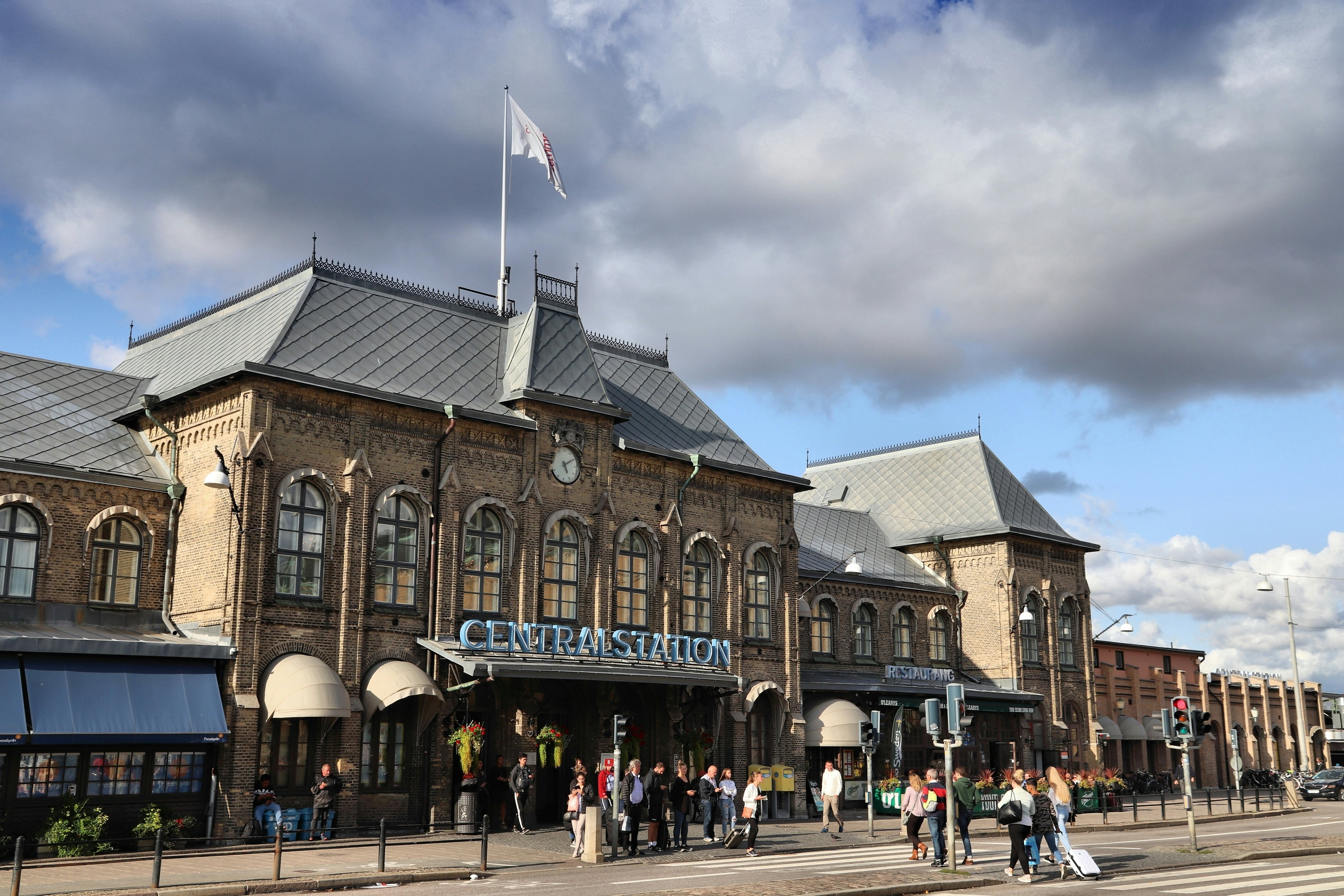
How to get to Gothenburg?
If traveling within Sweden, Gothenburg is well-connected by train to cities like Malmö, Helsingborg and Stockholm. Sweden can be reached by rail from Germany, Denmark and Norway. If you fly into Landvetter Airport, the Flygbuss airport coach - which runs on HVO renewable diesel - will take you to the city center in 20 minutes.
From there, pick up a transit pass, which will cover trams, buses and boats — more than enough to easily explore the city. A 72-hour pass for Gothenburg and some surrounding areas is 230 SEK ($22 USD).
Stretch your kronor with these tips for budget travel in Sweden
Alex Butler explored Gothenburg at the invitation of Göteborg & Co.





